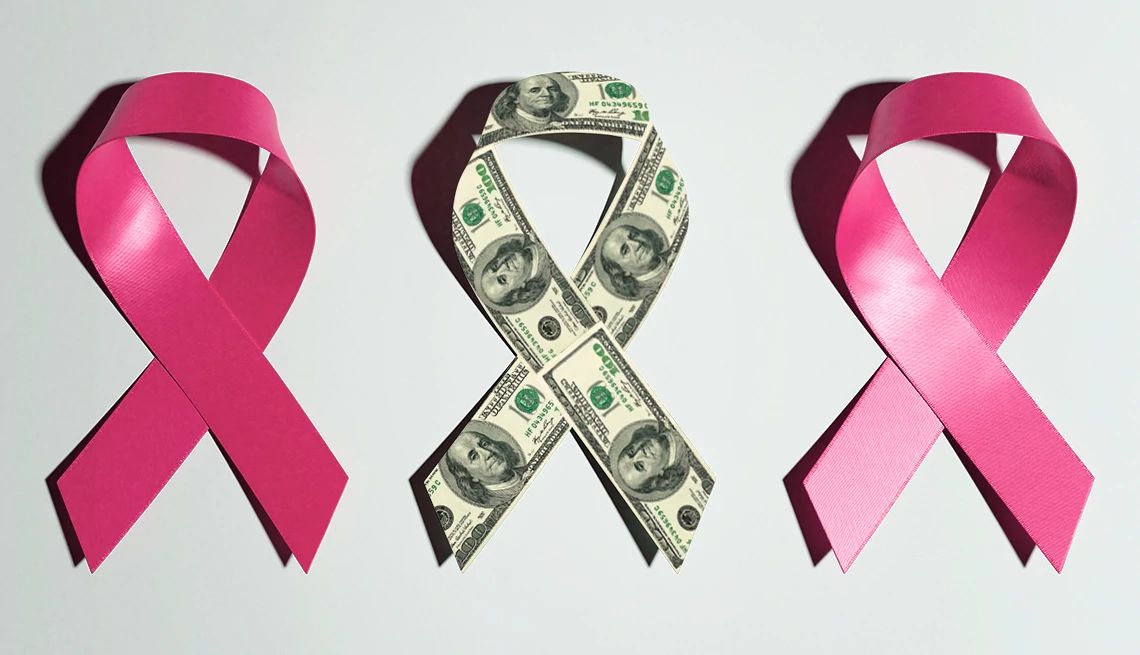AARP Hearing Center


About two years ago, 19-year-old Madison Russo said she’d been diagnosed with stage 2 pancreatic cancer. Just a few months later, she reported that she also had acute lymphoblastic leukemia and a football-sized tumor wrapped around her spine.
“I don’t know if I will live to see the day I graduate from college, get married or become a mom,” Russo, a college student at St. Ambrose University in Davenport, Iowa, told her local newspaper in October 2022.
The apparently suffering young woman shared her story on the social media platform TikTok and raised nearly $40,000 for medical expenses on the online fundraising platform GoFundMe. Then, nearly a year after her supposed diagnosis, police arrested Russo for faking her cancer and defrauding hundreds of donors. She pleaded guilty to first-degree theft in June 2023, and in October she received a 10-year suspended sentence, allowing her to stay out of prison if she serves three years of probation and provides $39,000 in restitution.
Russo’s conviction and sentencing hardly put a dent in the money-making machine that is charitable fraud. In 2023, there were nearly 10,000 reports of charitable solicitation fraud in the United States, resulting in $22.5 million in losses to kindhearted donors, according to the Federal Trade Commission (FTC). That’s up 156 percent from 2019, when there were fewer than 4,000 reports, resulting in $6 million in losses. There are no reliable numbers on what proportion of those involve fake cancer diagnoses, but a spate of high-profile cases of scammers seeking funds for nonexistent cancer treatment suggests that it’s a disturbingly common ploy.
“Cancer causes are really popular [with scammers] because almost everybody knows somebody who has been impacted by cancer,” says Kevin Scally, chief relationship officer at Charity Navigator, which rates more than 225,000 charities based on criteria like financial health, accountability and transparency. “So, you really need to have your guard up.”
Cancer charity scams make people sick
Rhonda Miles, 66, was one of Russo’s victims — targeted because she heads the Nikki Mitchell Foundation, whose mission is to provide comfort and relief to those affected by pancreatic cancer — including approximately 70 pancreatic cancer patients to whom it gives monthly financial assistance to cover things like groceries and gas. She established the charity after her best friend, Nikki Mitchell, died of pancreatic cancer in 2013.
“Madison was probably googling ‘pancreatic cancer patient assistance,’ and our name popped up,” says Miles, who lives in Nashville, Tennessee. After receiving a request for assistance from Russo, Miles sent her a gift card worth a couple hundred dollars. She also offered to connect Russo to a revered pancreatic cancer surgeon who serves on the foundation’s board. That’s when things began to unravel. Russo wouldn’t send her medical records to the surgeon, nor did she return the foundation’s application for financial assistance, which had to be signed by a doctor and faxed to the foundation from the doctor’s office.
“Finally, Madison said, ‘It’s just too much trouble. I don’t want any assistance.’ And — bam — she dumped us,” says Miles, who later testified against Russo in court.
Russo isn’t unique. In 2015, 37-year-old Jeremiah Jon Smith faked a terminal cancer diagnosis and stole $23,000 from friends and family who’d raised the cash through fundraisers and on GoFundMe. (Hear more about the crime in this two-episode report on AARP’s The Perfect Scam podcast.) In 2018, 33-year-old Candace Streng received a prison sentence for stealing more than $30,000 while pretending she had stage 4 breast cancer. And in January, 41-year-old Pamela Reed was arrested for collecting some $10,000 to support her daughter’s fake leukemia.
“I think there’s every reason to feel angry because [people] ... have been exploited for having kind hearts,” said Marc D. Feldman, M.D., a psychiatrist and coauthor of the book Dying to Be Ill: True Stories of Medical Deception, on The Perfect Scam. “That’s a very distressing thing.”






































































More From AARP
What to Know About the Latest Amazon-Impostor Scams
Be aware of the latest ways criminals use the company’s name to steal from consumersWhat to Do If You've Just Been Scammed
How one woman worked quickly — with help — to avoid being charged through PayPal
How a Connecticut Woman Lost $165,000 in an FBI Impersonation Scam
Her large cash withdrawals didn’t raise red flags at her bank. She wishes they hadRecommended for You